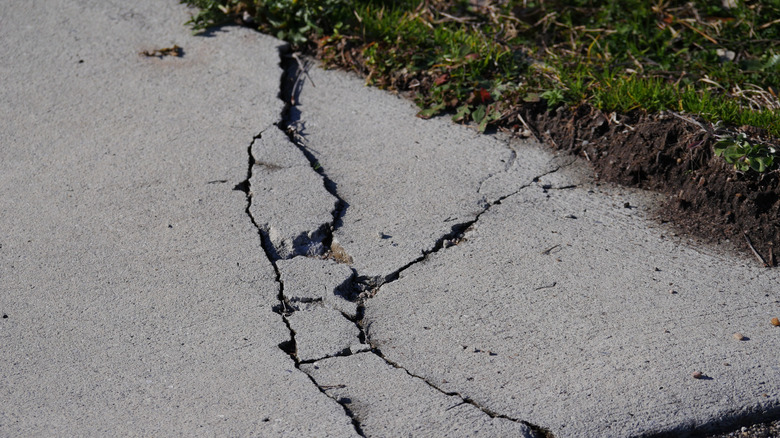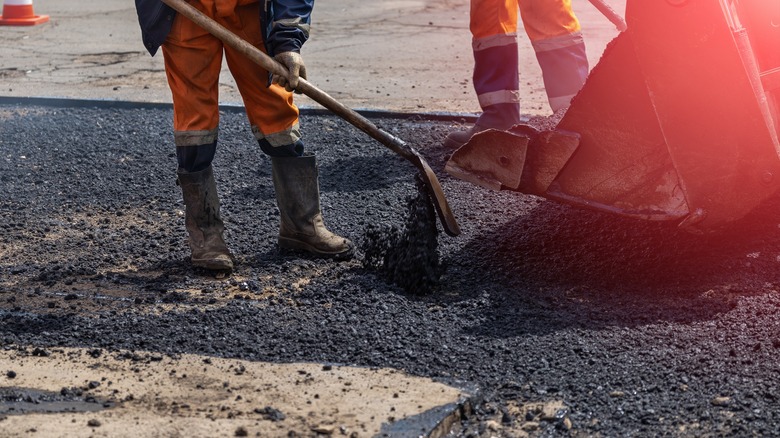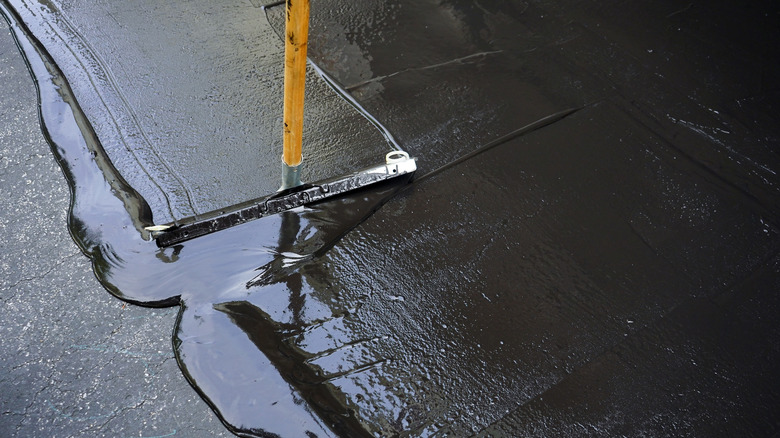Can You Pave Over Existing Driveway Or Do You Need To Dig It Up?
Cracks in concrete driveways are a common issue. Weather conditions, tree roots, and heavy equipment can all leave you with unsightly and dangerous fractures in what used to be a perfectly smooth surface, notes Home Depot. If you're fed up with the current situation, you may be considering switching to an asphalt driveway instead. They're more weather resistant and typically cheaper and quicker to install than concrete options. Just slap a layer over your existing base and everything should be protected, right? Maybe not.
It's possible to lay asphalt over concrete if the level and condition of the existing driveway permits, but it may not be the best option. Instead, you should remove the existing base for the most long-lasting and even results. It's more of a hassle and requires some heavy equipment, but it's an important step to ensure your new asphalt stays looking fresh for years to come. Keep reading to learn the top two reasons why, and consider a full replacement before just opting to add a new layer.
Different bases
While asphalt and concrete may appear to be similar materials at first glance, they require different preparation processes. According to the American Concrete Pavement Association, asphalt is a much more flexible material. This means that the weight of whatever is on top isn't as evenly distributed over the base as concrete. It needs something underneath — a base and sub-base — that's able to flex and absorb the load of the weight on top. Typical choices include stone and gravel, which are then set under a relatively thin layer of asphalt that keeps everything smooth.
Concrete, however, is a thick, rigid slab. It does a lot of the leg work in terms of weight distribution, so a base and sub-base don't matter as much in terms of preparation. Layering asphalt over this doesn't allow for the flexibility that asphalt needs. Cracks in the concrete can quickly show through to the asphalt, leaving you with an expensive repair job.
Reduced longevity
One of the main draws of an asphalt driveway is its resistance to weather and other environmental factors, but installing it over concrete won't give you those same benefits. It's more resistant because it's so flexible — laying asphalt over a thick, solid material like concrete defeats the purpose. An improper base will compound the damage you have to deal with down the line, so it's only really good for a quick change in appearance, warns CMI Paving.
It's tempting to ignore the advice of professionals to save money and avoid the laborious process of removing the existing concrete, but really you are just putting off those expenses for a later date. If you're already doing a major upgrade, it's worth the hassle to go through the process and do it correctly the first time. Quick fixes feel good in the moment, but slapping on an asphalt band-aid won't actually solve any of the existing issues with your driveway.


